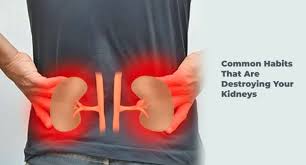Kidney disease is becoming one of Uganda’s most urgent health problems, with thousands of patients now relying on dialysis to survive.
Experts warn that many people are only diagnosed when the disease is already in its advanced stages, leaving them with costly and lifelong treatment options.
According to data from the Ministry of Health, about 13% of Uganda’s population is affected by kidney disease. By the end of 2023, more than 1,000 people were reported to have end-stage kidney failure requiring dialysis, with Mulago National Referral Hospital handling the majority of cases.
At UMC Victoria Hospital, Dr. Reham Hussein, a kidney specialist (nephrologist), says the hospital receives 25–30 new dialysis patients every week, many referred from within Uganda and neighboring countries like DR Congo, Rwanda, and South Sudan.
Two Main Types of Kidney Disease
Dr. Reham explains that kidney disease comes in two forms:
• Acute Kidney Injury (AKI): a sudden decline in kidney function, often reversible if treated early.
• Chronic Kidney Disease (CKD): a slow, progressive loss of kidney function that is often irreversible and lifelong.
The danger with CKD is that it remains silent in the early stages. Many patients only seek help when the disease has advanced to stage 3 or 4, when damage is already severe.
The Cost of Survival
Treatment for CKD is very expensive. In most private hospitals, dialysis costs Shs250,000–300,000 per session, with patients needing 3–4 sessions every week. This adds up to Shs1 million weekly, excluding medicine.
Recognizing this burden, UMC Victoria Hospital, with support from donors, started a Corporate Social Responsibility program that subsidizes the cost to Shs150,000 per session, making dialysis more affordable for many who would otherwise go untreated.
“While dialysis is still costly, this program has opened a door for many patients to access care and live longer,” said Dr. Ramin Matin Tavakoli, Director of UMC Victoria Hospital.
Who Is Most at Risk?
Anyone can develop kidney problems, but some groups face higher risks, including:
• People with diabetes
• People with high blood pressure or heart disease
• HIV-positive individuals
• Older men with urinary tract blockages
Dr. Reham urges people in these groups to check their kidney function at least twice a year using blood tests, urine tests, and ultrasound scans.
Treatment Options
When kidneys fail completely (stage 5), patients require renal replacement therapy, which includes:
1. Haemodialysis – filtering blood through a dialysis machine 2–3 times a week.
2. Peritoneal Dialysis – using the abdominal lining to filter blood (less common in Uganda).
3. Kidney Transplantation – replacing the failing kidney with a donor kidney, which offers the best long-term solution.
However, transplantation requires thorough testing to ensure both the donor and recipient are fit, followed by lifelong medication and monitoring to prevent rejection.
Prevention is Key
Doctors stress that many kidney cases can be prevented. Simple steps include:
• Managing diabetes, hypertension, and heart disease properly.
• Avoiding misuse of painkillers and antibiotics.
• Doing regular health check-ups, even when you feel fine.
“Early detection can save lives. Don’t wait for symptoms to appear. Protect your kidneys now,” Dr. Reham advises.
The Bottom Line
Kidney disease is silent but deadly. With rising cases in Uganda, experts are urging the public to pay more attention to kidney health through early testing, lifestyle changes, and responsible medication use. Taking action early can save both lives and money.



